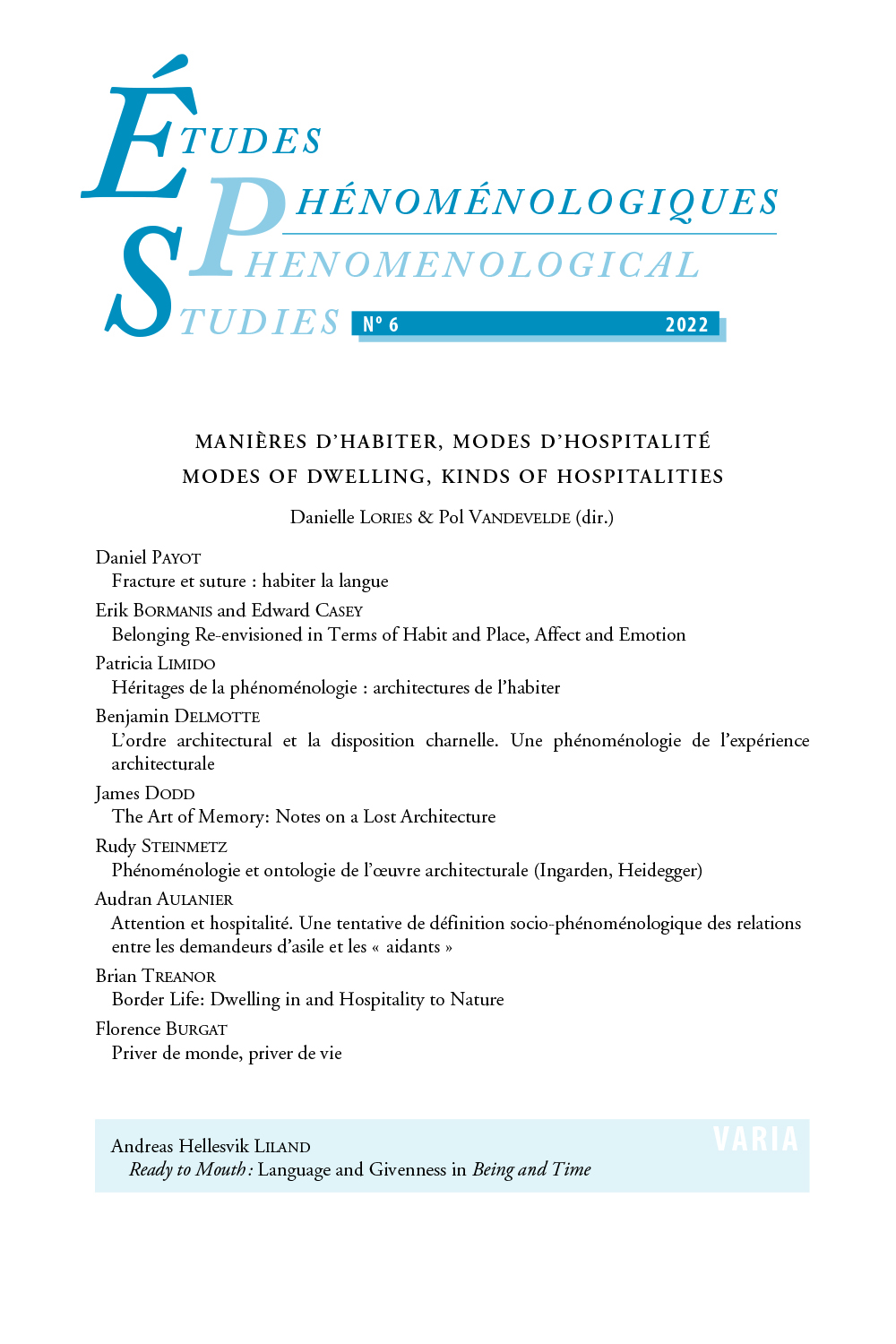next article in this issue  |

Preview first page |
Document Details : Title: The Symbolic Function and Phenomenological Architectonics Subtitle: Merleau-Ponty's Phenemenology of Perception and the Specter of Cassirer Author(s): WATSON, Stephen H. Journal: Etudes phénoménologiques - Phenomenological Studies Volume: 4 Date: 2020 Pages: 1-23 DOI: 10.2143/EPH.4.0.3286909 Abstract : This paper further examines the complex relation commentators have noted between Merleau-Ponty’s Phenomenology of Perception and the work of Ernst Cassirer. First, I detail Merleau-Ponty’s proximity to, and reliance upon Cassirer in The Structure of Behavior and Phenomenology. Secondly, I demonstrate the distance he takes from Cassirer, even while acknowledging his debts. Initially this distance echoes the resources of phenomenology’s contestation of neo-Kantianism, beginning with Husserl and Weyl. At the same time Merleau-Ponty’s contribution to phenomenology in this exchange is both unique and more sophisticated. It depends, for example, not only upon his unique synthesis (and reciprocal criticisms) of Husserl and Heidegger in accounting for the rationality of our being-in-the-world. He also brought to bear strengths he found in the French school of philosophy of science, including his teacher Brunschvicg, concerning its theoretical development. The result afforded him a perspective from which to affirm aspects of Cassirer’s expressivism while denying his critical or logical idealism, and without succumbing to Cassirer’s objections to Merleau-Ponty’s phenomenological predecessors. This explains why (among other reasons) – and notwithstanding the Phenomenology’s interaction with Cassirer – the latter largely disappears from his theoretical interlocutors when Merleau-Ponty further develops an account of the rational based on a renewed historical and ontological interpretation of the implication of Husserl’s notion of institution or Stiftung. |
|


